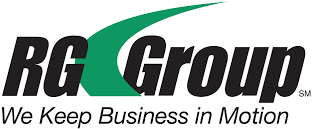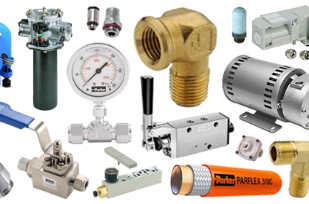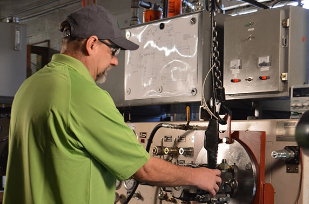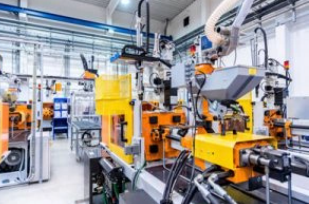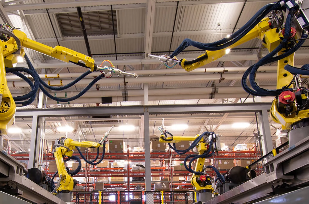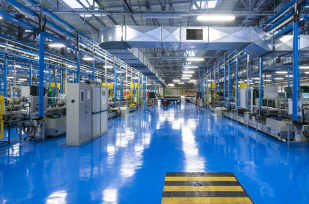Did you know that 76% of the cost of your air compressor is the electricity used to run it? That leaves 12% for maintenance and equipment each.
Now take that into consideration with the fact that the typical industrial air compressors have an efficiency of around 10-15%. That means you can’t afford to have your compressor not run at top performance standards.
When your compressor starts to slip, your costs are going to rise, both in operation and production.
How do you prevent this from happening? You need to keep an eye out for these 5 signs that your air compressor is starting to fail you.
Start By Troubleshooting
Before we get into the 5 signs, it’s important to troubleshoot your air compressor. You’ll notice that with each of the signs, we suggest some troubleshooting tips.
Because air compressors are a large investment, you should always try to fix it first. Then if that fails, consider replacing.
1. They Are Outdated
We are all used to old machines that need replacing at this point. Air compressors have a lifespan that is only so long.
How long your compressor lasts depend on the quality and amount of use. Keep in mind that one breakdown leads to another.
It may be cost effective to repair the first couple times. But as time goes on the cost of repair will rise. This will ultimately end up costing you much more than if you had simply bought a new one at need.
2. Not Performing to Standard
If you know that your compressor normally performs at a certain level, and it’s not anymore, then it’s time to think about replacing it.
3. Can’t Keep Up with Growth
If your company is growing you’re probably planning on buying or leasing a lot of new equipment. An air compressor should be on that list too.
Air compressors only hold so much air. When you start to use them, you deplete that stock of air. As this happens, the compressor will kick back on to compress more air.
You will then get stuck waiting for the compressor to catch back up. This means lost productivity. Instead, bringing in an additional compressor will take some of the workload off of the first unit.
Replace your Piston Compressor with a Screw Compressor
If you find that you have outgrown your piston compressor, then it may be time to consider upgrading to a screw compressor. Piston compressors are great as an entry level solution.
It’s usually the go-to when companies only have the occasional need. As the business grows though, the need for the air compressor becomes more constant.
This is where the screw compressor comes in. These compressors are compact, efficient, and reliable. They have the ability to continually provide compressor air without the downtime.
4. Pressure Drops
If your operators are noticing a pressure drop in their tools then you need to look at the pressure settings. Most of the time, they are just set too high.
If this isn’t the case then you should check the filter to make sure it isn’t saturated. Then check the pipes to make sure they are big enough to handle the air capacity.
If all of this is ok, but you still have drops in pressure, this could mean that the unit is too small for the demand. Go back to number 3 on this list.
5. It Just Plain Stops
The most obvious ways to tell if it’s time to replace your compressor is if your current one stops working. Keep in mind that your compressor may be shutting down due to high temperatures.
If it’s the heat of the summer the air around the outside of the compressor may be preventing the compressor from cooling off. This will cause it to overheat and then shut off.
If this isn’t what is happening, then the sudden shut off is a sign that there is a problem. You need to confirm that you don’t need to blow out the coolers.
If you do this and it starts working, then you’re good. If it is still having problems, then this means there’s a major failure in the components. Your best option is to replace the compressor at this point.
How to Replace your Compressor
Do not let your immediate need for a replacement compressor cause you to rush into a decision. It is important to take the time to understand what type of compressor you currently use.
Then you need to decide if you should replace it with something similar or upgrade to newer technology. If you decide to upgrade the size of your compressor, you need to make sure that your shop’s power supply can match it.
While it is important to size up for expected growth, you don’t want to go too big. Then you will end up paying much more than you needed for a compressor with capabilities you won’t use.
When you Need New Industrial Air Compressors
Industrial air compressors only last for so long. That lifespan gets shorter as you put them through more use. If you are starting to see the signs of problems with your air compressor then it is time to take action.
The first thing you should do is troubleshoot to make sure you know the source of the problem. If you’ve tried all of the possible solutions, then you will have to face the prospect of replacing your air compressor.
When you go to replace your compressor, think about your current and future needs. You want your next one to last a while and accommodate the growth your company intended to have over the coming years.
We can help you replace your air compressor today.
